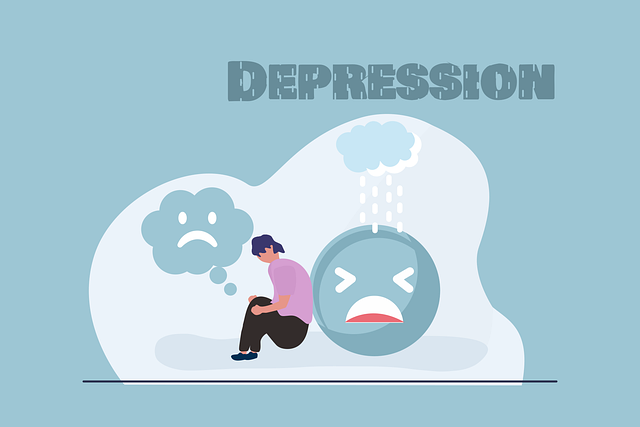Young adults with neuro disorders like ADHD, autism, or epilepsy face unique substance abuse challenges due to impaired decision-making and emotional regulation. Self-medication exacerbates co-occurring mental health issues. Evidence-based therapies such as cognitive-behavioral therapy (CBT) and compassion cultivation equip individuals with coping strategies. Organizations like the Stress Management Workshops Organization offer tailored programs, empowering individuals to manage stress without substances. Comprehensive long-term recovery requires multi-faceted approaches, including CBT, cultural sensitivity, social skills training, and Trauma Support Services. Building strong support systems within communities fosters resilience and emotional regulation, facilitating successful reintegration into society for young adults with neuro disorders.
Substance abuse among young adults with neuro disorders poses unique challenges, demanding tailored risk reduction strategies. This article delves into understanding the heightened vulnerabilities within this demographic and explores effective countermeasures. We examine the pivotal role of therapy in addressing underlying risk factors, offering comprehensive long-term recovery plans. Furthermore, the importance of support systems and community engagement for achieving and maintaining sobriety is highlighted, with a specific focus on Therapy for Young Adults with Neuro Disorders as a game-changer in mitigating this complex issue.
- Understanding Substance Abuse Risks for Young Adults with Neuro Disorders
- The Role of Therapy in Mitigating Risk Factors
- Comprehensive Strategies for Long-Term Recovery
- Support Systems and Community Engagement for Sustained Sobriety
Understanding Substance Abuse Risks for Young Adults with Neuro Disorders

Young adults with neuro disorders face unique challenges when it comes to substance abuse risks. Neurological conditions such as attention-deficit/hyperactivity disorder (ADHD), autism spectrum disorder, and epilepsy can impact an individual’s decision-making abilities, impulse control, and emotional regulation—all factors that contribute to vulnerability to substance misuse. For instance, some individuals may use substances as a form of self-medication to alleviate symptoms or manage co-occurring mental illnesses, such as depression or anxiety.
Therapy for young adults with neuro disorders plays a crucial role in mitigating these risks. Evidence-based therapeutic approaches, including cognitive-behavioral therapy (CBT) and compassion cultivation practices, can help individuals develop coping strategies, enhance self-awareness, and manage underlying mental health conditions. Moreover, risk management planning for mental health professionals is essential to ensure a comprehensive and supportive environment. By addressing the specific needs of this population and reducing the stigma associated with mental illness through compassionate cultivation efforts, it becomes possible to minimize substance abuse risks and foster healthier outcomes for young adults with neuro disorders.
The Role of Therapy in Mitigating Risk Factors

Therapy plays a pivotal role in mitigating risk factors associated with substance abuse, especially among young adults. For this demographic, therapy offers more than just treatment; it’s a space for self-discovery and learning coping mechanisms that can prevent a descent into addiction. Through evidence-based approaches such as cognitive behavioural therapy (CBT), young adults can address underlying mental health issues, neuro disorders, and learn to manage stress effectively.
Targeting stress management as a core strategy, organizations like the Stress Management Workshops Organization are pioneering programs aimed at empowering individuals with tools to navigate life’s challenges without resorting to substances. Similarly, Risk Management Planning for Mental Health Professionals is crucial in ensuring practitioners are equipped to identify and address risk factors in their clients, promoting holistic mental wellness coaching programs that can prevent or mitigate substance abuse.
Comprehensive Strategies for Long-Term Recovery

Comprehensive strategies for long-term recovery from substance abuse involve a multi-faceted approach tailored to each individual’s unique needs. Therapy for young adults with neuro disorders plays a pivotal role, addressing not just the addiction but also underlying conditions that may contribute to it. This often includes a combination of individual and group therapy sessions, focusing on cognitive behavioral therapy (CBT) techniques to help individuals identify and change maladaptive behaviors and thought patterns.
Integrating stress management practices, cultural sensitivity in mental healthcare practice, and social skills training can significantly enhance recovery outcomes. Stress management techniques teach individuals coping mechanisms to handle triggers and emotional distress without resorting to substance abuse. Cultural sensitivity ensures that treatment plans are tailored to respect and incorporate the individual’s cultural background, fostering a sense of belonging and engagement. Social skills training helps rebuild relationships and enhances communication abilities, which are crucial for maintaining sobriety and reintegrating into society.
Support Systems and Community Engagement for Sustained Sobriety

Building strong support systems and engaging with one’s community are vital components in achieving and maintaining sustained sobriety, especially for young adults navigating neuro disorders. Therapy specifically tailored for this demographic offers a safe space to process complex emotions and traumas that may contribute to substance abuse. By integrating Trauma Support Services, individuals can address underlying issues that could trigger relapse, fostering resilience and emotional regulation skills.
Community engagement expands beyond therapy sessions, providing opportunities for social connection and peer support. Mental Wellness Podcast Series Production, for instance, can offer accessible resources and relatable narratives, encouraging open dialogue about recovery challenges and successes. Equally important, Self-Care Routine Development for Better Mental Health becomes a cornerstone of long-term sobriety, teaching individuals to prioritize their well-being and cultivate coping mechanisms that enhance overall mental wellness.
Understanding the unique risks associated with substance abuse among young adults with neuro disorders is a critical step in fostering long-term recovery. By implementing comprehensive strategies that combine therapy tailored to this demographic, robust support systems, and community engagement, we can significantly reduce these risks. Specifically, Therapy for Young Adults with Neuro Disorders plays a pivotal role in mitigating risk factors by addressing the complex interplay of mental health, brain development, and substance misuse. Ultimately, fostering sustained sobriety requires an integrated approach that supports individuals through every stage of their recovery journey.













